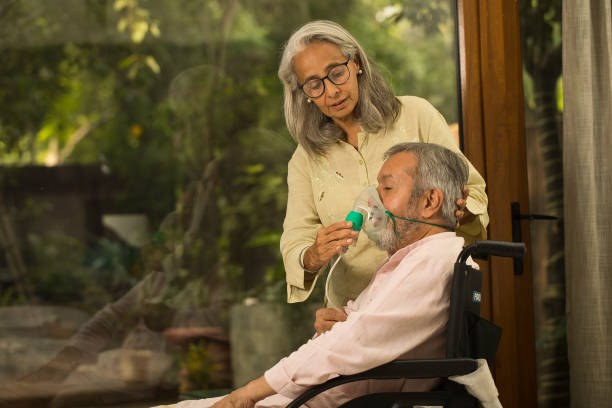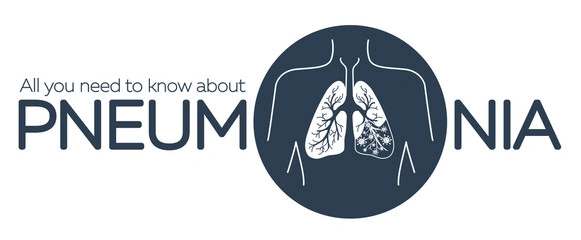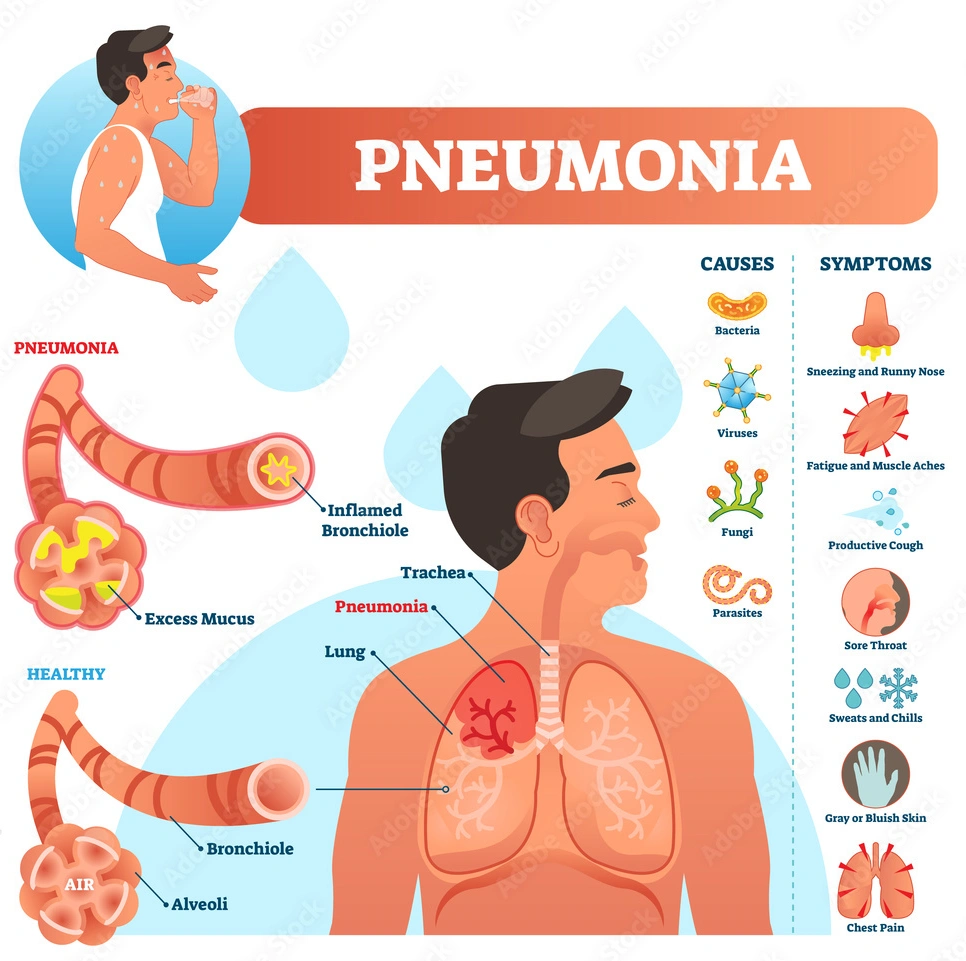Why pneumonia can be Deadly in Elderly
02-10-24
Pneumonia is a respiratory infection that causes inflammation of the air sacs that line the lungs. Pus can form, reducing the amount of oxygen in the blood. Breathing problems, coughing, fever, and chills are common symptoms of the condition. Although pneumonia can affect people of any age, children under two and adults over 65 are the most vulnerable. Pneumonia vaccines/vaccination is suggested to every elder for better health.
Where and How Can Seniors Get Pneumonia?
Being around people raises your chances of getting pneumonia. Specific scenarios, however, apply to older adults:
● Healthcare Settings: Older adults are more likely to get pneumonia in these settings than in other age groups.
● Community-Acquired Pneumonia: You are more likely to contract pneumonia in many people. This includes senior care facilities as well as family gatherings.
● Aspiration: Because of muscle weakness, older adults are more likely to develop pneumonia when foreign particles and fluid enter the lungs.
● The bacteria streptococcus pneumoniae and haemophilus influenzae, as well as common respiratory viruses like the flu, are more likely to cause the condition in older adults.
Why are older people more susceptible to pneumonia?
Frailty
Older people are simply frailer than younger people. However, frailty is not defined by a single disease or diagnosis. It is a clinically recognized state of increased vulnerability caused by aging-related declines in reserve and function across multiple physiologic systems, compromising the ability to cope with every day or acute stressors.
Muscular weakness, for example, is a common indicator of frailty in seniors and can have a direct impact on an elder's ability to effectively clear secretions from the lungs and avoid infection. Unintentional weight loss (10 pounds in the last year), self-reported exhaustion, slow walking speed, and low physical activity are also indicators of frailty.
Immune System Dysfunction
As our immune systems weaken with age, older adults may have a more difficult time-fighting infections like pneumonia. Some medications, such as steroids and chemotherapy, can further suppress immune responses. Cigarette smoking and excessive alcohol consumption can also have an impact on immune function.
Age-Related Health Issues
Other chronic medical conditions that increase the risk of developing pneumonia in seniors include diabetes, Parkinson's disease, dementia, and heart disease. Lung diseases such as cystic fibrosis, asthma, emphysema, COPD (chronic obstructive pulmonary disease), and bronchiectasis all increase the risk.
Surgery
Seniors who have recently undergone surgery are more vulnerable to pneumonia because their bodies are already working hard to heal. Pain relievers are commonly prescribed after surgical procedures, but they can cause patients to take shallower breaths, which contributes to mucus buildup in the lungs. The same is true for sedatives and anesthesia. Post-operative pneumonia is a common surgical complication that frequently leads to longer hospital stays and readmissions.
When Should You See a Doctor?
If you are over the age of 65 and have difficulty breathing, a persistent fever, a cough, or any of the pneumonia symptoms, you should see a doctor. This is especially true if you have a heart condition, chronic lung disease, or other sensitive underlying condition.
It is critical for family caregivers to learn about pneumonia and other medical conditions that commonly affect seniors. This information will provide you with additional peace of mind that you are doing everything possible to keep your loved one healthy.




